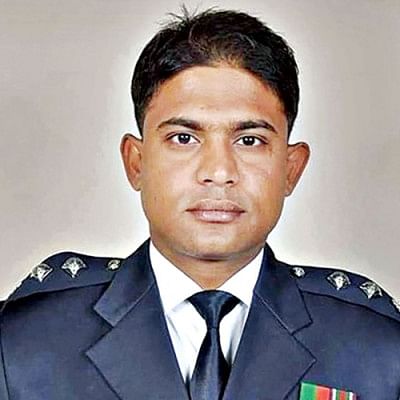Police officer’s death reveals horrific abuse of patients in mental hospital

Cctv footage from the Mind Aid Psychiatry and De-Addiction Hospital in the capital's Adabor, where Senior Assistant Superintendent of Police Anisul Karim met an untimely death on Monday, paints quite a clear picture of what the Tejgaon Division Deputy Commissioner has called an "obvious murder"—it shows Anisul being wrestled to the ground by five to six people, who tie his hands behind his back and push him into a small room. During this attack, he becomes increasingly motionless. Later, a woman in an apron enters the room, locks the door and performs CPR, but to no avail.
An investigation by this daily revealed that this room was used to deal with "angry patients"; one member of the hospital staff called it a "soundproof torture cell." The police have also revealed that the hospital authorities could not show a valid license or any of the legal documents required to run a mental hospital. This is hardly a shock—in July this year, The Daily Star reported that two-thirds of the country's over 15,000 private clinics and diagnostic centres have been running without a valid licence since 2018, facing almost no consequences. What is hugely disappointing, however, is that the DGHS and health ministry are still failing to deliver on their responsibilities, despite the public outcry over unlicensed hospitals and their unlawful and unethical practices during the pandemic.
However, Anisul's death does not just tell us of the blatant mismanagement and lack of accountability of certain private hospitals that act with impunity in the absence of any regulation from the relevant authorities. It shines a spotlight on the reprehensible treatment of patients suffering from mental health issues in Bangladesh. Anisul's family denied that his behaviour was aggressive on the day but even then, what gives hospitals the authority to manhandle "aggressive" patients so violently that they die from it? On what grounds are staffers, ward boys and cleaners allowed to deal with sensitive patients with psychological problems, with no medical personnel involved? Despite the Mental Health Act 2018 replacing the 106-year-old Lunacy Act 1912 to ensure the safety and dignity of mental health patients in Bangladesh, why are they still being treated like they have no agency and no rights?
If a police officer with mental health complications can be beaten, abused and ultimately killed in this way, we dread to think how ordinary citizens, especially those with more severe issues that could lead to aggressive behaviour, are mistreated by healthcare providers. The DGHS and health ministry must fulfil their responsibilities and ensure that all mental health hospitals and service providers are regularly monitored and held accountable. We urge the authorities to also take speedy legal action against the persons and hospital authorities responsible for Anisul's death.

 For all latest news, follow The Daily Star's Google News channel.
For all latest news, follow The Daily Star's Google News channel. 



Comments